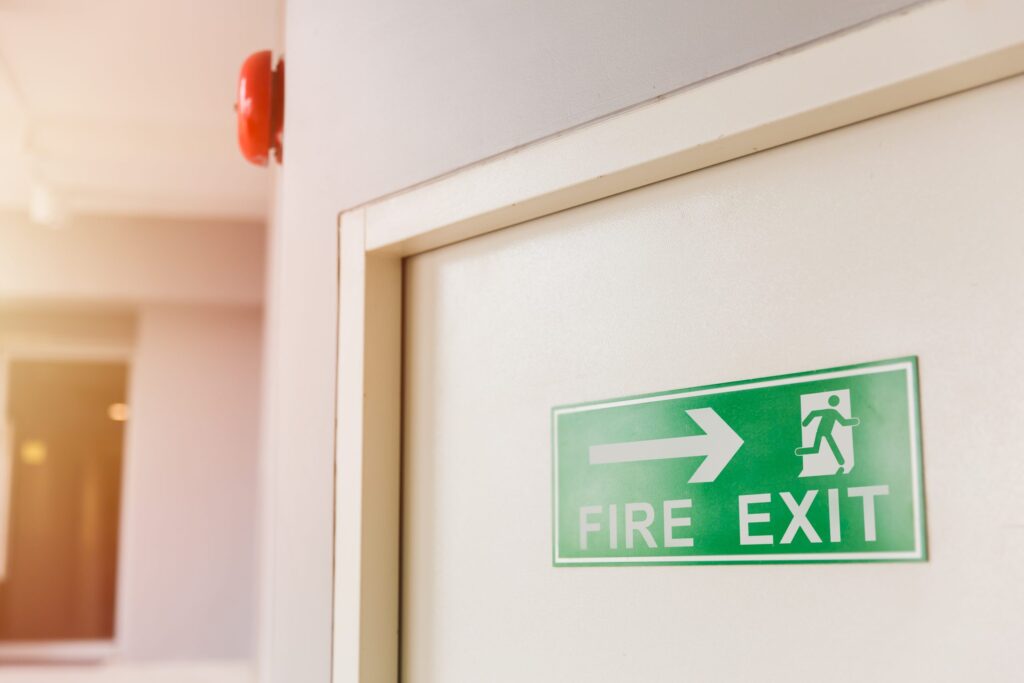
Your home is your sanctuary and place of comfort but emergencies can still find their way into the safest place. From kitchen fires to sudden medical crises, the unexpected can disrupt the calm of daily life. While we hope these situations never arise, being prepared for emergencies at home is crucial.
This article provides practical tips on how to prepare and respond effectively when faced with emergency situations within your own four walls.
TYPES OF EMERGENCIES
There are several emergencies that can occur in the home. The following are the most common:
- Fire Emergencies:
Incidents resulting in fire outbreaks often stems from the kitchen or through electrical appliances.
- Medical Emergencies:
Medical emergencies at home commonly includes injuries from fall, fainting, choking while eating or drinking, and even more critical situations like cardiac arrests and stroke.
- Natural disasters:
While we don’t experience disasters like hurricanes and earthquakes in Nigeria, there are other disastrous disasters like flooding that requires immediate response.
- Security Emergencies:
These are situations whereby your safety or security is compromised. At home, this usually occurs in the form of break-ins by burglars or robbers.
PREPARING FOR EMERGENCY SITUATIONS

While emergencies usually happen out of nowhere and are often beyond your control, knowing what to do in those critical moments can help to minimize damage. It can also reduce potential harm and provide a sense of control and security when it matters most.
Here’s how you can prepare ahead of this unforeseen circumstance:
- Expect Risks:
One way to stay alert at all times is to assess the possible risks in every situation. Assessing risks is also a way of preventing accidents before they occur. For instance, cooking requires carefulness and adequate attention in order to avoid spills or the possibility of a fire starting. Knowing this, you will keep away distractions and objects that may cause fire from your cooking area.
- Come up with an Emergency Response Plan:
Developing an emergency response plan everyone is familiar with is a great step for preparedness when danger strikes. Additionally, each member of the household should be assigned a role to carry out and should occasionally practice their roles.
- Own Emergency Supplies:
The importance of having the right tools in order to respond effectively to emergencies cannot be overemphasized. There are several tools everyone should have to prevent or take better control of these situations. In the case of fire incidents, having fire alarms installed and fire extinguishers at home can go along way at preventing damage.
- Learn Basic Life-Saving Skills:
Some medical emergencies require immediate attention to prevent further complications. Knowing how to carry out the following can be life-saving:
- CPR
- Counting/Reading of Pulse
- Applying pressure to wounds to stop bleeding
- Rescue breaths
- First -aid treatment
- Back blows
- Use Personal Security Applications:
Having security apps installed on the phone is great for averting dangers and reacting swiftly to urgent situations. The StoneCircle features on Limestone for instance, helps you to send panic alerts and share your location to contacts for immediate help response.
RESPONDING TO EMERGENCIES AT HOME
- Do not panic
It may sound ironical, but in the event of an emergency, the wise thing to do is to remain calm. This helps you to carefully assess the situation, gather your thoughts and take the next line of action.
To avoid panic, you can take breathing exercise and chant affirmations like ‘everything is in control’.
- Communicate effectively
When explaining the situation, ensure you communicate clearly so that you are understood. Miscommunication may lead to misunderstanding or confusion and may worsen the situation.
- Reach out to emergency services
Immediately contact emergency services and be clear when passing information. Also, follow to the latter any instructions given. Information you may need provide includes:
- Your location
- Nature of emergency
- Number of people involved
- Actions already taken
- Act fast in cases of medical emergencies
As stated earlier, some medical situations may require fast attention. If you possess any of the skill stated earlier, apply them where needed, if not, follow instruction given to you by emergency personnel pending their arrival.
- Seek for help around you
Not everyone will be able to think properly or handle situations like these alone. If you are unable to act promptly or you need more hands, do not hesitate to seek help around you.

CONCLUSION
Emergencies at home are unpredictable, but your response doesn’t have to be. Being prepared and knowing how to act decisively can prevent lasting regret and minimize damage. By implementing the tips shared in this article, you’ll be equipped to handle unforeseen situations with greater confidence. Don’t wait for an emergency to prove the value of preparedness. Take the first step towards securing your home with StoneCircle today.
Found this article useful? Let us know in the comments and share it with your loved ones!

